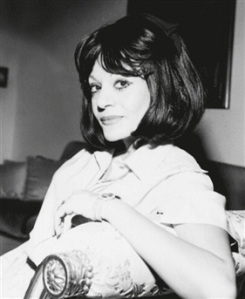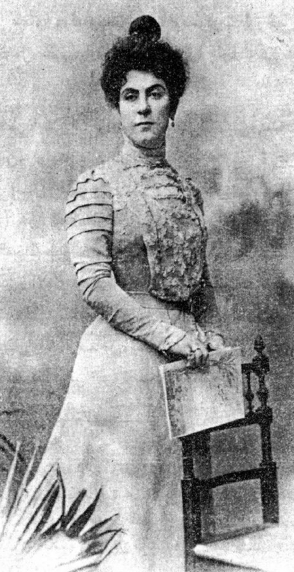Related Research Articles

Fatema Mernissi was a Moroccan feminist writer and sociologist.

Hanan al-Shaykh is a Lebanese author of contemporary literature.

May Elias Ziadeh was a Lebanese-Palestinian poet, essayist, and translator, who wrote many different works both in Arabic and in French.
Mai Ghoussoub was a Lebanese writer, artist, publisher and human rights activist. She was the co-founder in London of the Saqi bookshop and publishing house.

Ghadah Al-Samman is a Syrian writer, journalist and novelist born in Damascus in 1942 to a prominent and conservative Damascene family. Her father was Ahmed Al-Samman, a president of the Syrian University. She is distantly related to poet Nizar Qabbani, and was deeply influenced by him after her mother died at a very young age.

Nawal Elsaadawi was an Egyptian feminist writer, activist and physician. She wrote numerous books on the subject of women in Islam, focusing on the practice of female genital mutilation in her society. She was described as "the Simone de Beauvoir of the Arab World", and as "Egypt's most radical woman".
Nazik Saba Yared is a Lebanese novelist and academic, a former professor, and a writer. She is the daughter of Alexander and Hala (Maalouf) Saba. She was married to the late Ibrahim Yared and has three children and four grandchildren.

Anbara Salam Khalidi was a Lebanese feminist, translator and author, who significantly contributed to the emancipation of Arab women.

Ameen Albert Rihani is a university professor, scholar and administrator. He is a professor of Arab American literature at Notre Dame University - Louiaze. He was the Vice President of Academic Affairs since 1997. In 2013 he became advisor to the President of NDU and the Secretary General of the Institute of Lebanese Thought.
Al Fatat was a women's magazine published in Alexandria, Egypt. The magazine was the first Arab women's magazine and was one of the earliest publications in the country. It was published from 1892 to 1894. Al Fatat is the forerunner of the women's magazines in the Arab countries.
Hind Nawfal was a Lebanese Antiochian Greek Orthodox journalist and feminist writer. She was the first woman in the Arab world and the broader MENA area to publish a women's magazine and an early promoter of feminism.
Layla Balabakki is a Lebanese novelist, journalist, activist, and feminist. Among her most notable works is Ana Ahya (1958) which tells the story of a woman's protest against parental authority and community leaders. Balabakki's literary work also inspired political uproar because of her public criticisms of Islam and sexually explicit stories. Balabakki was brought to trial, while her work was censored. Her desire to push back against societal values and explore alternative female identities made Balabakki a large influence on contemporary Arab feminism.
Amīnah al-Saʿīd also known as Amīnah Saʻīd was an Egyptian journalist and women's rights activist. She founded Egypt's first women's magazine and was the first woman magazine editor in the Middle East.
Imane Khalifeh (1955–1995) was a Lebanese educator and peace activist.
Evelyne Bustros was a Lebanese writer. She published multiple books and articles in her lifetime.
Nur Salman is a Lebanese writer.

Alexandra Avierino was an English-Lebanese writer.
Jean Said Makdisi is a Palestinian writer and independent scholar, best known for her autobiographical writing.
Dalal Khalil Safadi was a Lebanese writer and translator. Considered a pioneer in the short story genre among Middle Eastern women, she was the first woman to publish a short story collection in Iraq.
La Zerda ou les chants de l'oubli is a 1979 avant-garde experimental documentary film directed by Assia Djebar.
References
- 1 2 ʻĀshūr, Raḍwá; Ghazoul, Ferial Jabouri; Reda-Mekdashi, Hasna, eds. (2008). Arab Women Writers: A Critical Reference Guide, 1873-1999. American Univ in Cairo Press. p. 314. ISBN 978-9774161469.
- 1 2 Toman, Cheryl (2007). "Introduction". In Toman, Cheryl (ed.). On Evelyne Accad: Essays in Literature, Feminism, and Cultural Studies. Summa Publications. pp. 3–5. ISBN 978-1883479534.
- ↑ "L'Excisée by Evelyne Accad". LiTgloss. Archived from the original on 2015-09-05. Retrieved 2014-11-05.
- ↑ Yared, Nazik Saba (2007). "Evelyne Accad on Women Excised". In Toman, Cheryl (ed.). On Evelyne Accad: Essays in Literature, Feminism, and Cultural Studies. Summa Publications. pp. 307–317. ISBN 978-1883479534.
- 1 2 Europa Publications, ed. (2003). International Who's Who of Authors and Writers 2004. Psychology Press. p. 4. ISBN 1857431790.
- ↑ Yetiv, Isaac (1979). "Reviewed work: Veil of Shame: The Role of Women in the Contemporary Fiction of North Africa and the Arab World, Evelyne Accad". Research in African Literatures. 10 (3): 394–396. JSTOR 3818355.